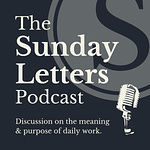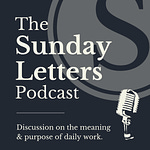I was at home at about 9 pm when the phone rang. The hospice called earlier, my sister said. They got a cancer care nurse to assist in the final few days. She had arrived at the house, and it was, in fact, only a matter of hours. I had been over earlier that day, and I knew time was short, but I didn’t think it would be as quick. How could I? It was happening for a while, maybe a year or more before she was diagnosed, but something in me didn’t want to acknowledge. I knew, but I didn’t know. In retrospect, the dots became joined, and her behaviour made sense. I had never experienced someone this close to me die before, and now here I was, about to watch her slip away. Joanne overheard my conversation and suggested I get over there without delay. She’s a hospice nurse and all too familiar with how ends play out.
I was filled with questions, and driving in the dark I felt that any effort to find answers was futile. Our instinct, it seems, is to try to save the ones we love. Just sitting by and watching them deteriorate is counter-intuitive. So we search for something, anything, to keep them here. Second opinions, experimental drugs, alternative treatments, prayers, we do whatever we can, no matter how ultimately useless and dire the situation, to save them. But there was something about her illness that made all of that pointless to me, even naive. Instead, it all simply collapsed into fact, like I was watching from the outside. I was in it, suspended in an alternate universe over which I had no control, like watching a car crash in slow motion and my mother in the driving seat. My role, it seemed, was to offer consolation. I had little else.
When I arrived at the house, my Dad was sleeping. He had been Phyllis’ carer in her last few months, and although he was determined to be there for her no matter what, the challenge had taken its toll on him. “It was the worst time of my life,” he says now. And this is strong coming from a man who lost his first child, Laura, at age seven. I think I could handle losing my wife better than losing one of my children. Both are traumatic, but children aren’t supposed to go before their parents. However, apparently, age is no antidote to loss and grief. New Years Eve night a few years ago, Joanne was working shift, so I went to my parent’s house to have a beer with my Dad. We talked about Laura, and he cried as he recalled having to identify her body in the morgue. That image has haunted him all his life, and now it haunts me. It reignites great sorrow for him, as it did for my mother, and now the prospect of losing his wife of fifty years had taken him back there.
I went to his room and woke him. He hadn’t yet spoken to the nurse and didn’t know that Phyllis had only hours left. I wasn’t sure what to say. The five of us were there in her final hours, watching, waiting; my Dad, my three sisters, and me. The room was lit only by candles. In the silence, we focused on her laboured rattling breaths, accompanied by ever-increasing gaps. As I stared at her, it seemed that she had already gone. Absolutely already gone, and only an obscure version of her remained, hanging on, literally, for dear life. Not long now, I thought as I looked at the time on my phone. At 01:13, on the last day of the year, she took her final breath. Silence. Dead silence. “She’s gone”, someone said, and we cried. I did what I could to console my sisters and my Dad, but what can one do under such circumstances. I can’t remember thinking of anything. The whole thing was simply bizarre, surreal.
We took some time together and with her, each alone in our own private grief and confusion, desperately trying to comprehend the gravity of our loss. I kept telling myself that there was nothing unique about this. Everyone must face it as so many have before. I told myself it was her time, that she had chosen it, and there was no tragedy in death at old age. Is 76 old? But I equally know that makes zero sense. Maybe that idea has afforded me some solace, or maybe it has allowed me to hide from the weight and trauma of my own emotions. Maybe I’m cold. Maybe I numbed myself to her affections over the years. She did try, but I always thought it was too late. Or maybe knowing all that was coming helped me process it. Maybe the distance between us was a gift that allowed me to escape the depth of pain and loss my sisters feel. The doctor came to confirm death a short time later. In a final gesture of appreciation towards her, I helped the nurse dress my mother in fresh pyjamas and laid her out.
People may say that in losing a loved one, a parent, that there is a great loss–a vacancy. Some may even feel it viscerally as a hole in their physical body. I respect that, but it’s not what I feel. Instead, for me, the vacancy has been filled with her departure. I found out everything in those final few days with my mother. Like the closing sequence of a movie where apparently discrete scenes finally come together, and our protagonist learns the secret that has eluded him throughout. Now it all makes sense. Everything. My entire young life. Every challenge was required, every absence and every blow worthwhile, all the hurt necessary. It was by mutual unbeknownst design. Isn’t that how life’s supposed to be, layers of confusion followed by eventual clarity?
All through those final few weeks, I felt privileged to be there, watching as she became less and less. Dissipating slowly into whatever it was that brought her here. I felt privileged for her, too, at making her transition. Can we find a benefit in that experience, perhaps even an apprehensive excitement? I think we can, from a certain perspective. After all, it’s a chance to resolve the final persistent dichotomy; who am I? She couldn’t answer it from her surface personality, and that’s why leaving was frightening for her. She put on a good show for a while, brave at times, even optimistic. But I sensed that she knew the game was up. I knew she knew. When that facade came down, she was melancholic at the thoughts of leaving her life, at the death of her self. She said to me with tears in her eyes one afternoon, “I don’t know who I am.” It was perhaps the most profound thing I have ever heard.
On another visit, she looked at me, arms outstretched and asked, “what’s it all about, Lar? What’s it all about? I don’t know; I just don’t know.” She asked the same question with what felt like the same depth of enquiry as I had been asking myself for some time. I, of course, had no answer for her, but it felt appropriate that she would ask it. It’s the question we must all ask of ourselves, yet we don’t, not really. We get lost in the multiplicity and complexity of our lives, and concern for those things replace us. The fight with a neighbour over a boundary wall, the kids toeing the line, the cost of food, how crap our politicians are, the job we hate so much–these things command our thoughts. But in our final days, these frivolous things take on their authentic plastic reality, and we have little choice but to face ours.
I liked to be alone with her because it was then I could get hers, and the true nature of our relationship could exist. Without others in the room, there was the opportunity for something, an honesty maybe. By now, she was mainly confined to her bed except for visits to the bathroom. Later, even those short walks weren’t possible. I sat at the end of the bed one day, and we talked. My Dad took Cara to the kitchen to get some sweets, and it was then she became upset. “I don’t want to go,” she said, “I’ve too much to do.” She looked like a child to me, helpless and confused at what she seemed to know was certain. I came closer, put my right arm around her shoulder, held her hand, and we both cried softly together. That’s all I could do.
She spoke of her mother, Bridget, a lot during that time. “That feckin’ bitch is coming for me,” she said, nodding her head in reluctant acceptance. “Now I have my son”, she apparently told her when I was born. “My son, not your son.” There was always a conflict between them, even after Bridget died. I guess the ink runs more than skin deep on some tattoos. “When you were born”, she said, “you were a brut; you nearly killed me. I knew you’d be alright. I didn’t have to worry about you.” As opposed to who? I thought for half a second. The penny dropped. Forty-six years old, and I had never seen it before this moment. It wasn’t about love or the lack of it, it was about protection–always about protection, and I didn’t need it as much as others. It was that premise by which she sculpted me.
Death is certain. Life is certain too, but I only get to be me, and you only get to be you for a fleeting moment. Before we know it, times up, that seems tragic, yet we have the opportunity to make it spectacular. The truth of the matter is that it is already spectacular, and we need no effort to make it more so. Do you want to burn bright for a short time or burn low for a longer time? Are they both not valid realities? Today is the anniversary of Laura’s death, and apt that I chose to write this today. She lived for a short time. Phyllis lived for a longer time. Tragedy and fortune are relative, and it seems our lives are a blend of both, so who’s to say what is tragic. In many ways, the tragedy is to not see the glory and the tragedy as one.
How bizarre is our existence? How utterly remarkable is it that we are even here? Is that not something to be celebrated? We are so obsessed with our material existence and our attachments that we fail to see the depths that lie beyond its apparent reality. We become so myopically absorbed with the contents of our thought and experience that we lose the benefit we’ve been gifted by merely being here. Success, wealth, attention, applause or the lack thereof; these things can be enjoyable or not, but they are abstractions, symbols of that mere surface reality. We have created a stage upon which to play, many props, and a myriad of reasons to protect them. In the process, we have forgotten who we are. Then death comes, and it is a disaster. And maybe that’s appropriate and valuable in a certain sense, because how can we know if we don’t know?
Words never teach, experience teaches, and my mother taught me a lot. The most significant of which occurred in those last few weeks. As a child, she taught me how to dice onions, chop turnip, peel spuds, and wash the kitchen floor, and when I do those things now, I think of her. I pass them, and more, on to my children and in that, she lives on subconsciously in their minds. She taught me some painful lessons too, and I regard them just as important. Although at the time, I wanted to be a million miles away from her. And I did, but that was her gift to me. As parents, our job is to make our children psychologically independent of us. The stronger the ties, the greater the pain of loss and the more unstable our lives become. Of course, we can go too far with this idea, completely removing all semblances of connection. But reunification can happen, even at the final moment. It’s a realisation that it all was purposeful, and we weren’t, in fact, separated at all.
I can’t not be grateful for what Phyllis Bryan has given me. I am eternally grateful, for everything. My time will come just as hers has, and when it does, I will have no choice but to go. As I anticipate it, my wish is that my children are left with the same sense that she left me.
In the meantime, I have a life to live.
In memory and appreciation for the life and legacy of Bridget Philomena Maguire (Ní Bryan), 25 Aug 1945 – 31 Dec 2020, and Laura Maguire, 13 Dec 1969 – 21 Mar 1977.
Thanks for taking the time to read my stuff. If you enjoy Sunday Letters, consider supporting my work. I’m on Twitter if you’d like to follow me there. Oh, and there’s the Sunday Letters Podcast.












128: Watching A Loved One Pass Away